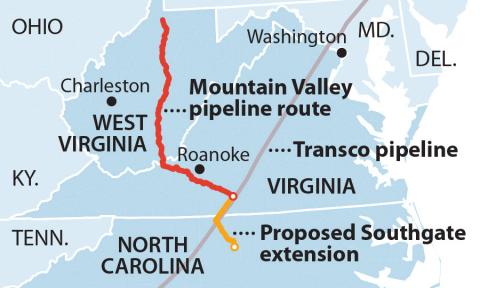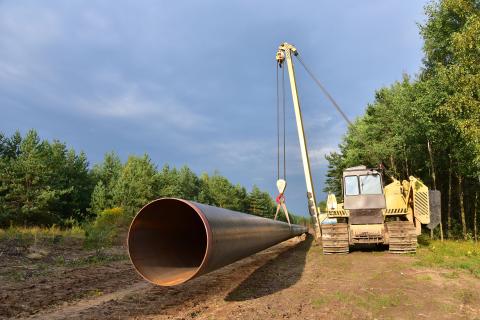Mountain Valley Pipeline update: Neither legislation nor law will change the truth about the Mountain Valley Pipeline

Key Findings
The U.S. Supreme Court lifted stays issued by the Fourth Circuit Court of Appeals that were holding up construction of the Mountain Valley Pipeline
The Supreme Court’s decision on Thursday does not provide its reasons for vacating the stays, but it also did not take action in response to MVP’s request to dismiss the underlying cases that had given rise to the stays.
There are growing trends in energy alternatives and economics that weigh against the MVP—neither legislation nor legal action can transform this pipeline into a smart energy project for the future.
The U.S. Supreme Court lifted the stays issued by the Fourth Circuit Court of Appeals that had been holding up construction on the Mountain Valley Pipeline, a controversial project to move gas from Pennsylvania and West Virginia to Virginia and elsewhere. The Supreme Court’s three-sentence decision does not provide its reasons for vacating the stays.
Also worth noting, however, is what the Supreme Court did not do.
Mountain Valley Pipeline LLC (MVP) had asked the court to treat the application for removal of the stays as a petition to dismiss the underlying cases pending before the Fourth Circuit that had given rise to the stays. The cases involve challenges to federal approvals for the pipeline.
The court explicitly declined to take action to dismiss the cases in the Fourth Circuit. The order does, however, state that the court’s lack of action on MVP’s request for dismissal was “without prejudice,” leaving open the option to consider that request further “in light of subsequent developments.”
On the same day that the Supreme Court issued its order, the Fourth Circuit held oral arguments on MVP’s motion to dismiss the appeals brought by advocates against the pipeline. These cases include a constitutional challenge to the federal debt relief legislation’s provision mandating pipeline approval and barring appeal.
So, all is not over yet.
IEEFA continues to challenge the need for the pipeline, and sees growing trends in energy alternatives and economics that weigh against the project. In our view, neither legislation nor legal action can transform this pipeline into a smart energy project for the future.


















